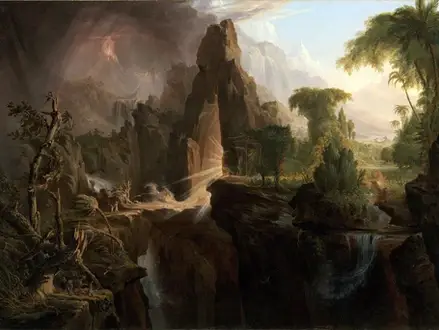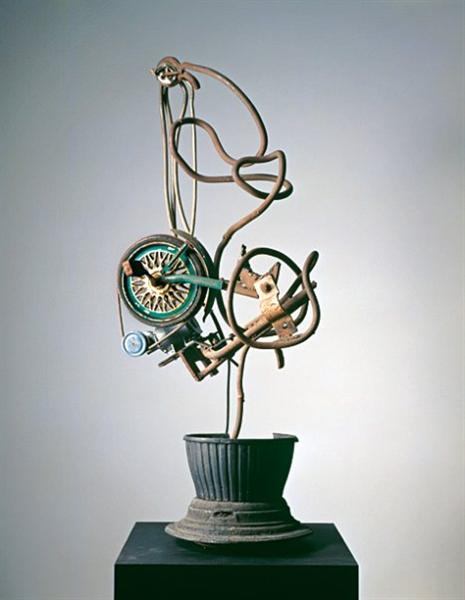Title of Artwork: “Expulsion from the Garden of Eden”

Artwork by Thomas Cole
Year Created 1827-1828
Summary of Expulsion from the Garden of Eden
An image of Adam and Eve being ejected from the Garden of Eden is depicted in this work. The pair, on the other hand, are dwarfed by a natural background that symbolises divine might, rather than their bare humanity. Contrary to popular belief, the picture should be read from right-to-left: from where violent shards of light seem to forcefully expel the lovers. Eden’s brilliant, clear sky are juxtaposed by the dark, stormy skies to its right, creating a striking allegory of Pathetic Fallacy.
All About Expulsion from the Garden of Eden
It shows Cole’s interest in religious themes and his attempt to link God’s will with the natural beauty of the United States in this early work. It is clear that Cole’s painting style is influenced by the romanticism of European artists like Claude Lorrain and Gaspard Dughet by this piece, which depicts an allegorical and Neoclassical landscape. An imagined environment based on the American wilds serves as the background for a scenario from fabled antiquity, rather than showing a representation of a genuine region. Neoclassical landscapes like Nicholas Poussin’s Landscape with a Man Killed by a Snake are suggestive of the framing and downsizing of human action within that greater picture (1648).
It’s possible that the American audience wasn’t ready to accept Cole’s seeming departure from the Romantic landscape style for which he was already well-known when he first released Expulsion from the Garden of Eden and kindred works. According to some critics, this picture resembles an engraving made by John Martin for Milton’s Paradise Lost edition (1667). Aside from its obvious religious connotations, this artwork shows how far-reaching Cole’s impacts were throughout history. After becoming an Episcopalian, Cole returned to religious art near the end of his life.
Information Citations
En.wikipedia.org, https://en.wikipedia.org/.

























